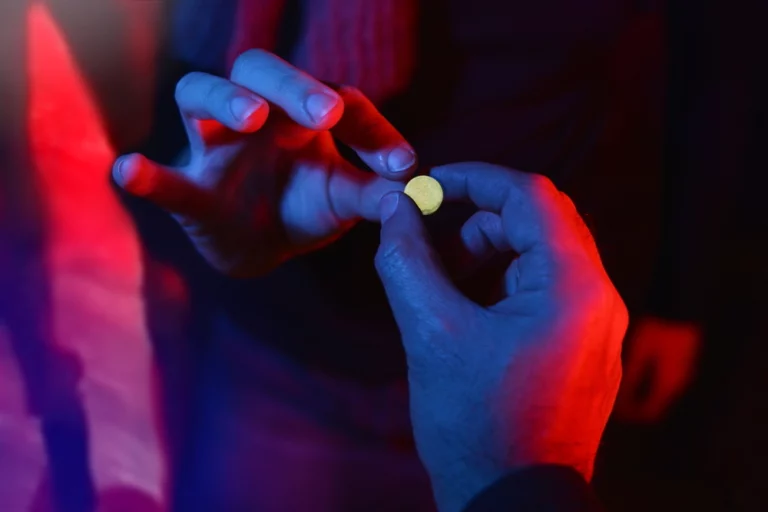Rising methamphetamine use is a major cause for concern for public health, families, and individuals. The truth is that no community is safe from the devastating and fatal effects of meth use.
Can meth kill you? Yes, methamphetamine use can be lethal due to its effects on the cardiovascular system, the risk of overdose, the presence of dangerous additives, rapid tolerance development, and severe withdrawal symptoms.
Why Is Meth So Dangerous?
Meth is considered one of the most dangerous drugs. Between 2015 and 2019, overdose deaths involving meth more than doubled. Methamphetamine is a stimulant. In addition to having a powerful effect on the central nervous system, meth is physically and mentally addictive. People who become addicted to meth are often attracted to its high-energy, mood-boosting effects. Some people feel energized, creative, and productive while taking meth, while others use it to suppress negative or stressful emotions. Increased attention, decreased fatigue, increased activity and wakefulness, decreased appetite, euphoria, and rush are some of the common side effects of meth. Unfortunately, these high-energy feelings are part of a reaction that puts intense strain on the body.
Read more: Why Is Meth So Addictive? 6 Evidence-Based Reasons
Connect With Us Now
Reach out to us now for immediate support, or let us know the best time to contact you through our confidential callback service. Your journey to healing is just a conversation away.
#1 Cardiovascular Risks
Methamphetamine dramatically increases blood pressure and damages the cardiovascular system. With each repeated meth use, the risk for a major cardiovascular event increases. When cocaine, caffeine, and other stimulants are taken alongside meth, the risks for extreme cardiovascular distress intensify. Risks include:
- Heart attack
- Stroke
- Irregular heartbeat
- Dangerously high blood pressure
- Hyperthermia (elevated body temperature)
- Convulsions
Meth-Induced Stroke
While other side effects of meth produce obvious signs, stroke is considered to be the “silent killer” because it can cause sudden death without prior symptoms. Any person of any age who uses meth is at risk for stroke. Meth use is a risk factor for stroke among young people. However, people above the age of 45 are at elevated risk for lethal strokes caused by meth use.

#2 Overdose: Sudden & Long-term Cases
Like all stimulants, methamphetamine use can lead to overdose. Methamphetamine overdoses can be categorized as either acute (sudden) or chronic (long-term). During an acute methamphetamine overdose, a person who is taking the drug either on purpose or by accident develops life-threatening side effects. The person may become unconscious or incapacitated before they can receive help. Signs of meth overdose can include:
- Agitation
- Chest pain
- Coma or unresponsiveness
- Heart attack
- Irregular or stopped heartbeat
- Breathing difficulties
- Very high body temperature
- Kidney damage/kidney failure
- Paranoia
- Seizures
- Severe stomach pain
- Stroke
- Paralysis
Effects Of Frequent Meth Overdose
Chronic methamphetamine overdose refers to the cumulative negative health effects experienced by someone who uses meth on a long-term, regular basis and experiences frequent strokes, heart attacks, and oxygen loss. This can lead to significant physical and psychological problems, including insomnia, mood disturbances, delusions, and paranoia.
Meth overdoses are on the rise for several reasons. Meth being purchased on the street today is mixed with other drugs, including fentanyl (a synthetic opioid 50 times stronger than heroin).
There is no way to determine if meth has been mixed with fentanyl and other drugs with the naked eye. What’s more, the high cost and general inaccessibility of testing sites make confirming drug content impossible for most people who are generally looking for a quick “high.”
Take Our Addiction Quiz for Recovery Insights
#3 Dangerous Additives
Unlike alcohol, cannabis, and psilocybin, substances considered as “naturally occurring,” meth is a fully synthetic drug. Methamphetamine is easily synthesized from inexpensive and readily obtainable chemicals. To make meth fast and inexpensive, manufacturers combine pseudoephedrine and ephedrine with cheap, toxic household chemicals, such as ammonia, lye, and red phosphorus. A person who purchases meth on the streets has no way of knowing exactly how harmful or toxic the chemicals used to make the finished product truly are.
#4 Increased Tolerance
When a person uses meth repeatedly, they build a physical tolerance. This tolerance causes the user to need to take more of the drug to induce the same pleasurable effects they experienced when they first began using. Tolerance is lethal because it causes a person to take higher, more frequent doses of the drug to get the desired effect. This can overload the body and lead to overdose and death. However, meth overdose can occur the first time someone uses it in any form.

#5 Meth Withdrawal Symptoms Can Be Fatal
Meth withdrawal is the process of the body and brain readjusting after becoming physically and chemically dependent on the drug. Most people experience a wide range of intense symptoms lasting from a few hours to several days. Detoxing from meth at home without medical supervision can lead to worsened and potentially fatal withdrawal symptoms. Common meth withdrawal symptoms include:
- Fatigue
- Insomnia or disturbed sleep
- Headaches
- Dry mouth
- Paranoia
- Hallucinations
- Loss of appetite/malnourishment
- Muscle spasms
- Anxiety
- Depression and mood swings
- Intense meth cravings (which can lead to relapse)
- Agitation or irritability
Are You Covered For Treatment?
Knoxville Recovery Center partners with numerous private insurance providers. Our team is committed to assisting you in quickly and effortlessly verifying your insurance coverage for treatment.
How Does Meth Addiction Treatment Work?
There are a variety of treatments available for meth use. What treatments you need will depend on how long you have been using and how much, as well as other factors, like co-occurring conditions. Here are the most effective ways to treat meth addiction.
- Detox: Ideally, meth addiction treatment starts with a medically supervised detox program. During a medical detox, people can complete the withdrawal process in a comfortable, monitored setting where experienced clinicians manage withdrawal symptoms and provide motivational support, nutritional supplements, and FDA-approved medication.
- Therapy: Once detox is completed, individuals can transition into an addiction treatment program and explore their behavior through one-on-one counseling, group therapy, and psychoeducation classes. This allows them to address trauma, behavioral patterns, thought patterns, and co-occurring issues tied to meth use.
- Holistic Therapies: Therapeutic resources can also include non-traditional treatments, such as breathwork, red-light therapy, guided meditation, yoga, and the nutritional aspects of wellness. These can help a person maintain long-term recovery.
- Aftercare: Aftercare provides support and additional resources once someone leaves full-time addiction treatment. Working with outpatient treatment centers and private therapists and attending support meetings can help people continue utilizing the tools they’ve developed during rehab and address new challenges.
Read more: How Long Does It Take To Detox From Meth? Medical Vs. Cold Turkey
The Takeaway
Can meth kill you? Yes, there is a risk of fatal overdose that can lead to death every single time a person uses meth. However, the fact of the matter is that even people who never experience an acute overdose event while engaging in meth use are still at risk for both overdose and death.
Chronic meth use includes extreme strain on the cardiovascular system. Over time, this can elevate risks for heart attack, stroke, and other fatal consequences. The toxicity of meth may also have untold long-term consequences.
What is the takeaway for someone concerned about their meth use? The most effective way to safely stop meth use involves a medically supervised detox followed by a residential treatment program.
Meth Addiction Treatment In Knoxville, Tennessee
If you or a loved one is struggling with meth use and want to enter a holistic-focused addiction treatment program, contact Knoxville Recovery Center. We offer on-site medical detox and residential treatment, two of the most essential and initial programs for individuals who’ve never attempted to quit meth use. It’s also perfect for individuals who want to escape distractions and stressors and heal in a safe and comfortable environment. Call, email, or fill out a form today to get started.








